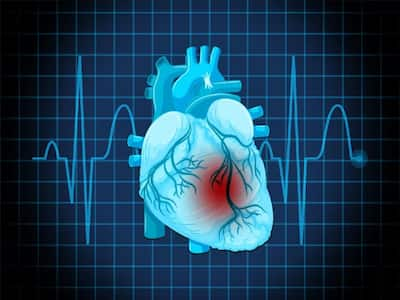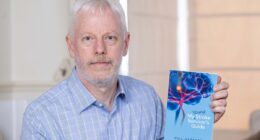
Considered an incurable heart condition, Cardiac amyloidosis can ultimately lead to heart failure. Three men has miraculously recovered form this fatal condition.
Heart failure is considered a global pandemic affecting millions of people worldwide and the rate of prevalence is increasing alarmingly. In people who had experienced heart failure. Their heart works less efficiently than normal. It is a fatal disease if left untreated. It is estimated that about half of heart failure patients die within 5 years of diagnosis. Common conditions that can lead to heart failure include coronary artery disease, high blood pressure, previous heart attack, amyloidosis, sarcoidosis, and some nutritional deficiencies. The good news is: It is now possible to reverse heart failure.
Yes, you heard it right. A study published recently in the New England Journal of Medicine revealed that heart failure resulting from cardiac amyloidosis can be reversed with natural antibodies found in survivors. The study cited three cases of cardiac amyloidosis who had a “natural” recovery from the condition.
Cardiac amyloidosis: One of the causes of cardiac failure
Considered an incurable heart condition until recently, Cardiac amyloidosis results from the build-up of faulty misshapen proteins in and around the heart. This makes it harder for the heart to pump blood which weakens and damages the organ, ultimately leading to heart failure.
Cardiologists at University College London were amazed when a 68-year-old man with heart failure caused by cardiac amyloidosis recovered from the condition naturally and survived. Such a case has not been known until now, according to lead study author professor Marianna Fontana, a cardiologist at University College London.
To better understand the miraculous recovery, a research team form the University College London and the Royal Free Hospital studied more than 1,600 patient records and identified two more patients with cardiac amyloidosis, aged 76 and 82, who also reported an improvement in their condition.
Scans and blood tests of the three men showed no more deposits of toxic amyloid protein and their heart had returned to a close-to-normal healthy state. Additionally, the men were found producing natural antibodies to ward off the proteins, which is believed to have led to their recovery. These antibodies were not found in other patients with worsening symptoms.
While the researchers are not certain if these antibodies caused the patients’ recovery, they observe it as “highly likely” and express the possibility for recreating such antibodies in a lab and using them for treatment for heart failure patients in the future. They are currently investigating this further.
READ RELATED: Long Journey Of COVID-19 And Its Impact On Physical And Mental Health
The finding challenges the belief that heart failure is irreversible
“This recent report published in the New England Journal of Medicine revealed a remarkable finding in cardiac transthyretin (ATTR) amyloidosis: three patients experienced spontaneous improvement in their heart function, challenging the belief that the disease is irreversible,” stated Dr. Aditi Singhvi, MBBS, MD Internal Medicine, DM Cardiology, Consultant, Cardiology – Adult, Heart Transplant, NICS, Narayana Health City, Bangalore.
Explaining the causes of Cardiac amyloidosisis, Dr. Singhvi said, “Cardiac ATTR amyloidosisis a rare condition in which abnormal protein deposits accumulate in the heart, leading to deterioration in the function of the heart. It can be inherited or occur due to age-related changes in the protein structure.”
How is the condition treated now? Dr. Singhvi responded, “Recent advances in imaging have made earlier diagnosis feasible, and new medications are also available now to delay the progression of this disease. However, this condition is still considered incurable. This discovery offers hope and potential for reversing the effects of this progressive illness.”
In a small case series of three men, an international team of researchers reported spontaneous recovery of cardiac ATTR amyloidosis, reversing cardiac structure and function to near normal. Each of these three patients reported reduced symptoms, although they had not received any new or potentially disease-modifying treatments. This development astounded the physicians. Detailed investigations revealed that these three patients had developed antibodies to human TTR amyloid protein.
It challenges the belief of irreversibility and opens doors for innovative diagnostic and treatment approaches. Continued research in this field may unlock transformative therapies, changing the lives of individuals affected by cardiac transthyretin amyloidosis, the cardiologist commented.
Total Wellness is now just a click away.
Follow us on
window.addEventListener(‘load’, (event) => {
// $(document).ready(function(){
$(‘#commentbtn’).on(“click”,function(){
(function(d, s, id) { var js, fjs = d.getElementsByTagName(s)[0]; if (d.getElementById(id)) return; js = d.createElement(s); js.id = id; js.src = “//connect.facebook.net/en_US/sdk.js#xfbml=1&version=v2.3”; fjs.parentNode.insertBefore(js, fjs);}(document, ‘script’, ‘facebook-jssdk’));
$(“.cmntbox”).toggle();
});
// });
});








